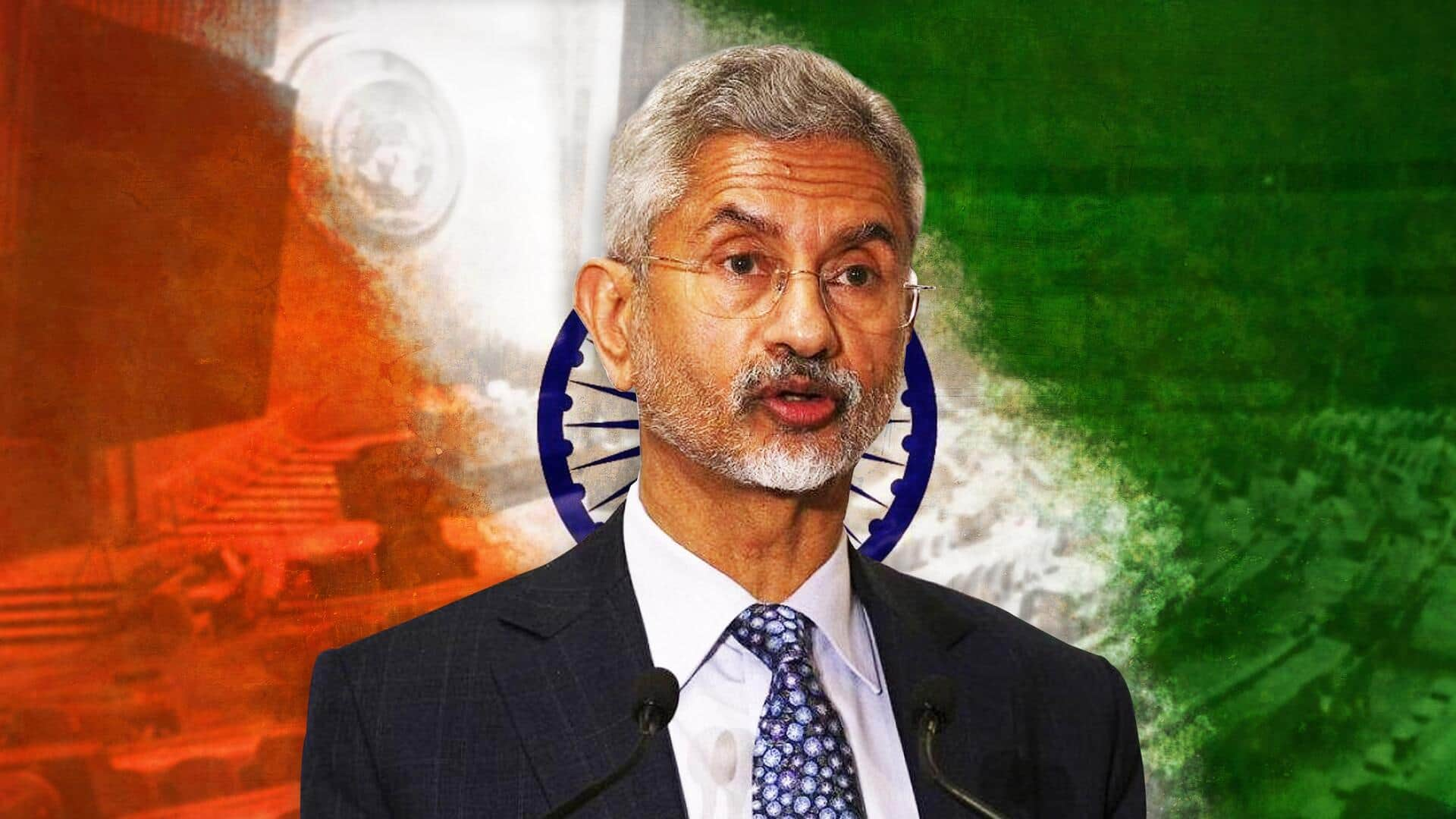
'Questioning their understanding': Jaishankar reacts to US envoy's CAA remark
What's the story
External Affairs Minister S Jaishankar defended the Citizenship (Amendment) Act (CAA) on Saturday, following criticism from the United States and other countries. Responding to US Ambassador Eric Garcetti's remarks on the CAA at the India Today Conclave, Jaishankar argued that India has a responsibility to those "who were let down" during the Partition. He also cited examples of other countries fast-tracking citizenship for specific religious groups. The CAA expedites Indian citizenship for persecuted non-Muslim minorities from Pakistan, Afghanistan, and Bangladesh.
Context
Why does this story matter?
The controversial law's implementation has sparked celebrations in certain segments of society, yet others are urging for a halt in the implementation, denouncing it as a "communal law." Before the CAA, India's citizenship law did not include religion when determining eligibility for an Indian passport. All non-Indians seeking naturalization had to demonstrate that they were in India legally. This changes with the CAA, making it the first time in independent India's history that religion has become a determinant of citizenship.
S Jaishankar
India's obligation to those let down during Partition
Responding to the US's criticism of the CAA, Jaishankar said, "Look, I am not questioning the imperfections or otherwise of their democracy or their principles or lack of it. I am questioning their understanding of our history." Jaishankar emphasized India's moral obligation to affected communities and the CAA's role in addressing historical issues. He said that during Partition India's leaders promised minorities in Pakistan they would be welcomed in India, but later leaders did not fulfill this promise.
US criticism
US expresses concern over CAA notification
On Thursday, the US State Department also voiced concerns over the CAA's implementation, saying it was closely monitoring the implementation. A day later, Garcetti stated that principles should not be compromised "no matter how close you are as friends." In response, Jaishankar cited several instances of countries fast-tracking citizenship for particular religious groups. He cited the Jackson-Vanik Amendment for Soviet Jews, the Lautenberg Amendment, the Specter Amendment, and fast-tracking Hungarians after the Hungarian revolution and Cubans in the 1960s.
Facts
US-India relationship, upcoming US elections
As for the upcoming US elections, Jaishankar said India is prepared for any outcome as India has already built a culture of engagement and relationship-building. He acknowledged the importance of the US-India relationship and mentioned India's high-level outreach to the Donald Trump campaign before the November 2016 results. Jaishankar also highlighted India's efforts to adapt to modern communication methods, such as social media, for diplomatic purposes.